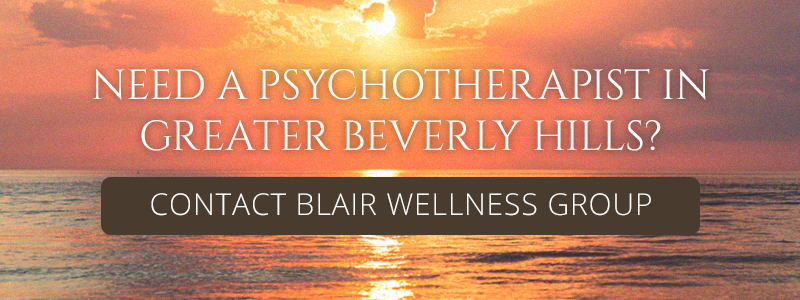Have you ever jumped at the sight of a snake or spider or felt uneasy climbing a ladder? If so, then you’re like millions of other people in the world who have a normal response to fear. In most circumstances, fears can be managed. They may cause us to feel uncomfortable, but they don’t prevent us from living our lives. For others, however, fears elicit serious psychological responses that can trigger severe anxiety, alter behavior, and create problems in everyday life.
Most people use the terms fear and phobia interchangeably, but in reality, they are two very different things. Today we’re going to explore what the difference is between the two and how you can overcome phobias with the help of an experienced anxiety psychologist. Keep reading, and if you’re looking for a licensed clinical psychologist who specializes in anxiety disorders, please contact Blair Wellness Group to schedule an appointment.
What is Fear?
Fear is a natural, primitive human emotion and survival mechanism that alerts us to physical or psychological threats that could cause harm. Sometimes those threats are perceived and other times they are very real. Fears usually manifest through either a negative experience such as falling off of a ladder or being bitten by a dog, or they can be learned from others such as when a child learns to fear a certain type of animal or insect because of the reaction they see their mother have to the creature.
In any case, whether real or perceived, learned or experienced, fears produce a biological and emotional response that can make you feel uncomfortable. Some of the most common responses to fear include feeling anxious, sweating, and becoming short of breath or nauseous. Despite these negative reactions, people who struggle with certain fears can still manage them if the situation requires them to do so. A person who has a fear of dogs may still go out for walks around their neighborhood, but they may take extra precautions or avoid homes where they know a dog resides.
What is a Phobia?
Unlike fears, phobias are considered to be a type of anxiety disorder. While some symptoms may be similar to those related to fears, the response to a phobia is much more severe and can influence maladaptive behaviors or develop into full-scale panic attacks. The intense and irrational fear that someone with a phobia has can make it difficult to function in everyday life.
Phobias are organized into three different categories — social phobias, agoraphobia (fear of certain places or situations), and specific phobias. It is estimated that almost 10% of all Americans have one or more phobias. The most common ones include intense fears of flying, heights, insects, snakes, spiders, dogs, storms, and social situations.
Anxiety Treatment for Phobias
Millions of people live with phobias every day, but that doesn’t mean that you have to. If you’re ready to live a life free from your phobia, Blair Wellness Group can help. Dr. Cassidy Blair is an experienced, licensed anxiety psychologist who can help you face the fears that are affecting your quality of life. Contact us today at 310.999.4996 to schedule an appointment.
Dr. Cassidy Blair is a renowned Licensed Clinical Psychologist and trusted Performance Coach who specializes in providing Concierge-Psychological Care and Executive Coaching for high-achieving professionals. With a deep understanding of the unique challenges faced by CEOs, executives, entrepreneurs, and leaders, Dr. Blair offers tailored, confidential care designed to foster emotional well-being, personal growth, and professional excellence. Her clientele values her discretion, clinical expertise, and emotionally intelligent approach to navigating complex personal and professional dynamics.
- This author does not have any more posts.





